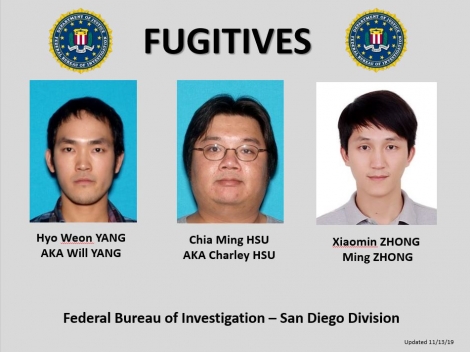14 indicted over $6 million counterfeit iPhone and iPad scheme in California

What you need to know
- 14 people have been indicted over a $6 million counterfeit iPhone scheme.
- The indictment was unsealed on November 13 by the U.S Attorney's Office in the Southern District of California.
- It is alleged that the group shipped 10,000 counterfeit iPhones and iPads to the United States, exchanging them for real phones in Apple stores across the country.
The U.S. Attorney's Office for the Southern District of California has indicted 14 alleged members of an international criminal organization. The group is charged with importing more than 10,000 counterfeit iPhones and iPads from China in a scheme thought to have cost Apple more than $6 million.
According to the DoJ website, 11 search warrants were executed on two businesses and several residential properties, as well as vehicles, in the early hours of Wednesday, November 13. $250,000 in cash was seized along with 90 iPhones, the authenticity of which are being evaluated.
11 of the defendants are being held in federal custody, a further three remain on the run. Of the three, one man, Xiaomin Zhong is believed to be in China, the other two in California.
In a case similar to a smaller scale counterfeit scheme reported last month, it is thought that the criminal outfit shipped over 10,000 counterfeit iPhones and iPads from mainland China. These devices were taken to stores throughout the United States and also Canada, where they were exchanged for genuine devices under warranty. These real devices were then shipped back to China and other countries and sold for premium profit.
U.S. Attorney Robert Brewer commented on the case saying:
"While a significant amount of money in any circumstance, this prosecution is about more than monetary losses... The manufacture of counterfeit goods - and their use to defraud U.S. companies - seeks to fundamentally undermine the marketplace and harms innocent people whose identities were stolen in furtherance of these activities. The United States Attorney's Office is fully committed to bringing to justice those who seek to damage American markets and consumers through the peddling of bogus products."
FBI Special Agent Scott Brunner further stated:
"This significant investigation and the indictment of these 14 individuals shows the FBI's commitment to working with the United States Attorney's Office and our law enforcement partners to combat international fraud schemes that affect American citizens and American businesses against counterfeit goods originating in China and those fraudsters who exploit American trademarked products for their personal financial gain."
Of the 14 indicted, the organization was thought to have been led by three brothers by the name of Liao. Zhiwei, Zhimin, and Zhiting Liao have all been arrested along with their wives, they are all naturalized U.S. citizens born in China. Other suspects include other Naturalized U.S citizens from China, as well as Korea, Russia and Vietnam.
iMore offers spot-on advice and guidance from our team of experts, with decades of Apple device experience to lean on. Learn more with iMore!
The summary of charges includes Conspiracy to Commit Mail Fraud and Wire Fraud, Wire Fraud, Mail Fraud, Conspiracy to Traffic in Counterfeit Goods, Identity Theft and Conspiracy to Launder Money. Of the 6 charges, 5 carry maximum prison sentences of up to twenty years, as well as fines of $12.2 million (twice the value of the gross loss to the victim, in this case, Apple).
The report further notes that all allegations are accusations and that the defendants are considered innocent unless and until proven guilty.
One of the interesting facts about this case, is that according to the indictment, the counterfeit iPhones and iPads had International Mobile Equipment Identity (IMEI) numbers (for the iPhones), as well as serial numbers that matched IMEI and serial numbers of real, genuine phones purchased and used by customers and covered under Apple warranty in the U.S. and Canada. When taken into stores, the IMEI/serial number would have matched up with Apple's systematic record of phones that were sold by the company and covered under its warranty.
It may well be that during the course of the scheme, a counterfeit iPhone or iPad may have been replaced under warranty using the serial number or IMEI of real Apple customers totally unbeknown to the situation.
There is no reported timeline for further proceedings in the case at this time.

Stephen Warwick has written about Apple for five years at iMore and previously elsewhere. He covers all of iMore's latest breaking news regarding all of Apple's products and services, both hardware and software. Stephen has interviewed industry experts in a range of fields including finance, litigation, security, and more. He also specializes in curating and reviewing audio hardware and has experience beyond journalism in sound engineering, production, and design.
Before becoming a writer Stephen studied Ancient History at University and also worked at Apple for more than two years. Stephen is also a host on the iMore show, a weekly podcast recorded live that discusses the latest in breaking Apple news, as well as featuring fun trivia about all things Apple. Follow him on Twitter @stephenwarwick9
